Systemic Anti-Cancer Therapy Regimen Library
SAR STS - IFOSFamide and DOXOrubicin [ARST0332] [intermediate and high risk]
Treatment Overview
This regimen is given as 3-weekly cycles of IFOSFamide and DOXOrubicin [ID], IFOSFamide [I], or DOXOrubicin [D] as per the ARST0332 trial for intermediate and high risk patients.
Exact scheduling of cycles is dependent on type of local therapy (e.g. surgery and/or radiation therapy) and when it is given.
The general Treatment schemas for Chemoradiotherapy and Neoadjuvant Chemoradiotherapy are below, refer to the patient's individual treatment plan for details.
ARST0332 - Chemoradiotherapy
* Cycle 1 (Week 1) and Cycle 7 (Week 19): DOXOrubicin moved to Cycle 3 (Week 7) and Cycle 4 (Week 10) in patients receiving brachytherapy.
† Cycle 6 (Week 16) and Cycle 7 (Week 19): DOXOrubicin moved to Cycle 3 (Week 7) and Cycle 4 (Week 10) in patients not receiving radiotherapy.
ARST0332 - Neoadjuvant chemoradiotherapy
‡ Cycle 5 (Week 16): DOXOrubicin moved to Week 25 in patients receiving intraoperative radiotherapy or brachytherapy following Week 13 surgery.
§ Cycle 6 (Week 19): DOXOrubicin moved to Week 25 in patients receiving external beam radiotherapy after Week 13 surgery.
As cycles 1, 2, 5 and 6 (refer Treatment Schema above), or as per patient's individual treatment plan.
As cycles 3 and 4 (refer Treatment Schema above), or as per patient's individual treatment plan.
As cycle 7 (refer Treatment Schema above), or as per patient's individual treatment plan.
Supportive Care Factors
| Factor | Value |
|---|---|
| Emetogenicity: | Variable |
| Growth factor support: | Variable |
| Hydration: | Variable |
| Mesna uroprotection: | Variable |
* The medicines, doses, combinations, and schedule in this treatment regimen have been carefully reviewed against international best practice guidelines by specialists in medical oncology around New Zealand and this advice has been accepted for publication by Te Aho o Te Kahu (the Cancer Control Agency). Sometimes medicines that are used in routine clinical practice have not been through a formal review process by the NZ Medicines Regulator Medsafe and are therefore considered unapproved or off-label. These medicines are legally able to be prescribed through sections 25 and 29 of the Medicines Act and by obtaining informed consent from patients. All treatment regimens listed on this website have been through robust peer review and are considered an accepted standard of care, whether prescribed through sections 25 or 29 or carrying formal Medsafe Approval.
s29: This symbol indicates that some formulations of the associated medicine are legally only able to be prescribed under section 29 of the Medicines Act. You can see which formulations are section 29 by hovering over the s29 symbol. You can access full medication details from the New Zealand Formulary by clicking on the medication name. Each clinician retains full responsibility for ensuring they have complied with all relevant obligations and requirements of section 29 including obtaining informed patient consent prior to prescribing the applicable medicine.






